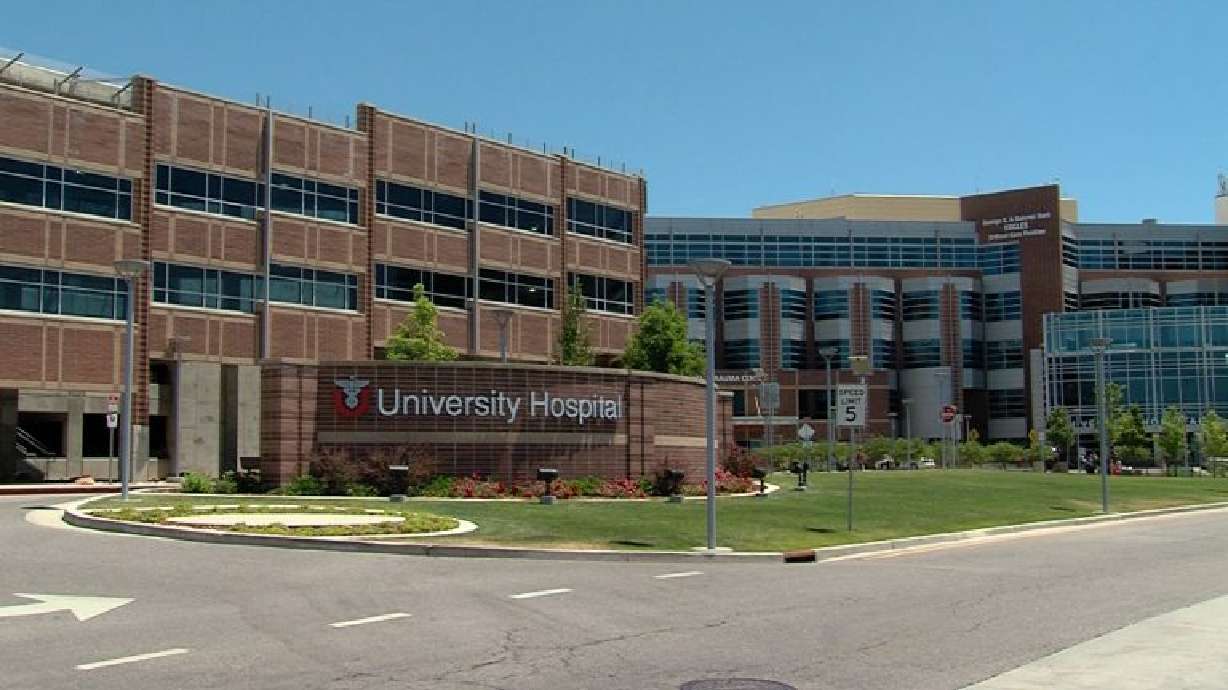Estimated read time: 2-3 minutes
This archived news story is available only for your personal, non-commercial use. Information in the story may be outdated or superseded by additional information. Reading or replaying the story in its archived form does not constitute a republication of the story.
SALT LAKE CITY — Scientists are discovering some of the mystery behind suicide.
The latest research at University of Utah Health strengthens a family link to suicide.
Dr. Eric Monson's research is personal. He lost his sister to suicide.
"I still remember, very clearly, being called down to the principal's office and my parents were in tears," said Monson, a chief resident psychiatrist with U. Health.
His work is a legacy of love.
"Just be able to ultimately prevent others from having to suffer the same thing," he said.
Suicide risk is partially heritable, experts say.
"There are spots in the human genome that appear to confer some risk," said Monson.
In a large study, Monson and his team at the U. hope to identify those gene variants and other genetic mutations, to help better understand who may be genetically at risk of suicide. They believe changes in the way neural transmitters communicate, and a gene that helps regulate synapse activity in the brain, could elevate the risk.
And, on top of that, there's a genetic predisposition for post traumatic stress disorder among people who have bipolar disorder. U. Health data show suicide is 10 to 30 times higher for people with bipolar disorder.
"Those who have these genetic predispositions likely have a poor response to stress or are less able to tolerate it," Monson said. "It's suspected that, because of this reduced ability to tolerate stress or to recover from it, that they end up with longer term illness."
Monson hopes the research leads to better screening, and that it becomes valuable for families like Amanda McIntosh and her daughter, Abbi, who live in Helper.
"She was the last gift that he could give me," Amanda McIntosh, a suicide loss survivor, said. Brian McIntosh, Amanda's husband and the father of their 8-year-old daughter, died from suicide seven years ago.
"She was definitely the brightest spot in his life," she said, adding that Brian's mother also took her own life.
"Just by looking at those smiles, you wouldn't have any idea," Amanda McIntosh said, referring to photos of her late husband and mother-in-law. "My husband was a great guy."
Abbi McIntosh said, "I do feel the presence of his soul sometimes. When he is happy and proud of me, he gets in my dreams. He's still in my heart."
But, Monson said, genes don't determine destiny.
"It is inherently preventable. It's a terrible outcome that steals so much opportunity, so much life from a person, but it doesn't have to be that way," he said.
They're digging deeper in hopes of saving lives.
Therapists say the most important thing someone can do to prevent suicide is to reach out and let loved ones know they're not alone.
Suicide Prevention Resources
If you or someone you know is struggling with thoughts of suicide, call the suicide prevention hotline at 1-800-273-TALK.
For real time emotional support and crisis prevention for students, parents and educators, to chat with a licensed counselor for support from a smartphone, download the Safe UT Chat and Tip app.
Crisis Hotlines
Utah County Crisis Line: 801-691-5433
Salt Lake County/UNI Crisis Line: 801-587-3000
Wasatch Mental Health Crisis Line: 801-373-7393
National Suicide Prevention Lifeline: 1-800-273-TALK (8255)
Trevor Project Hotline for LGBTQ teens: 1-866-488-7386
Online resources
NAMI Utah: namiut.org
Utah Chapter-American Foundation for Suicide Prevention: afsputah.com
Suicide Prevention Lifeline: www.suicidepreventionlifeline.org









